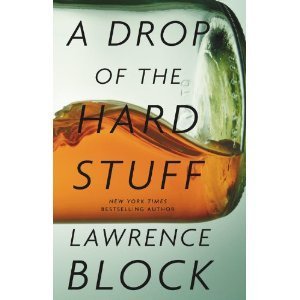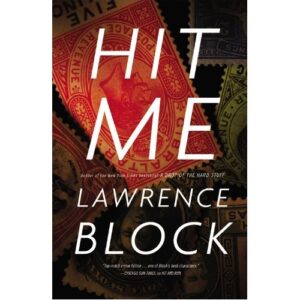I’ve been a fan of Lawrence Block’s writing for several years. I first discovered his short stories while I was working for Marty Greenberg. Then, I discovered his novels…and I’ve been hooked ever since! Because he has written such inspirational non-fiction on the craft of writing, we’ve also included an excerpt from his book, Spider, Spin Me a Web that we thought you would you enjoy! Please welcome Lawrence Block to The Editing Essentials!
 Lawrence Block has been writing award-winning mystery and suspense fiction for half a century. His most recent novels are HIT ME, featuring Keller, and A DROP OF THE HARD STUFF, featuring Matthew Scudder. Several of his books have been filmed, although not terribly well. He’s well known for his books for writers, including the classic TELLING LIES FOR FUN & PROFIT, and THE LIAR’S BIBLE. In addition to prose works, he has written episodic television (TILT!) and the Wong Kar-wai film, MY BLUEBERRY NIGHTS. He is a modest and humble fellow, although you would never guess as much from this biographical note. www.lawrenceblock.com
Lawrence Block has been writing award-winning mystery and suspense fiction for half a century. His most recent novels are HIT ME, featuring Keller, and A DROP OF THE HARD STUFF, featuring Matthew Scudder. Several of his books have been filmed, although not terribly well. He’s well known for his books for writers, including the classic TELLING LIES FOR FUN & PROFIT, and THE LIAR’S BIBLE. In addition to prose works, he has written episodic television (TILT!) and the Wong Kar-wai film, MY BLUEBERRY NIGHTS. He is a modest and humble fellow, although you would never guess as much from this biographical note. www.lawrenceblock.com
 WD: How did you discover writing fiction?
WD: How did you discover writing fiction?
LB: Just lucky.
 WD: What’s one tip you’d give to every new writer out there just starting their career as a writer?
WD: What’s one tip you’d give to every new writer out there just starting their career as a writer?
LB: Don’t expect too much. “Each writer has to find his own way to write his own story. Each writer is a stranger in his own strange land; how then can I presume to guide you through a country I myself have not visited?
The writer of fiction is a spider. Drawing upon his inner resources and shaping them with his craft, he spins out his guts to trap his dinner. There are no blueprints for the novel, for the short story. However well the spider may serve as a totem animal for fictioneers, there are fundamental differences between the weaving of webs and the spinning of tales.
…Writers, whatever they write, are apt to find the spider an apt totem. Indeed, I’ve learned that writers of all sorts have far more in common than one might suppose. And, too, the distinction between fiction and nonfiction has never been that clear-cut, and has grown increasingly blurry over the years.
In fiction, traditionally, the writer wants us to believe that he has made the whole thing up. In nonfiction, he wants us to believe that he hasn’t. Both weave much the same sort of web, and out of the same inner stuff.
Thank you for being here today, Mr. Block. If you have any questions or comments for him, we’ll be sure to pass them on. Thank you! We hope you enjoyed it. 🙂


